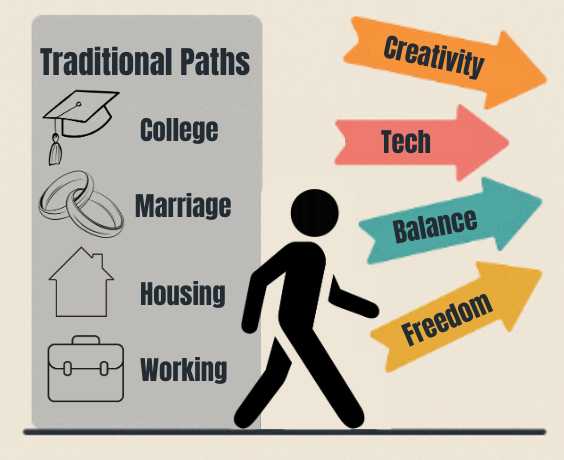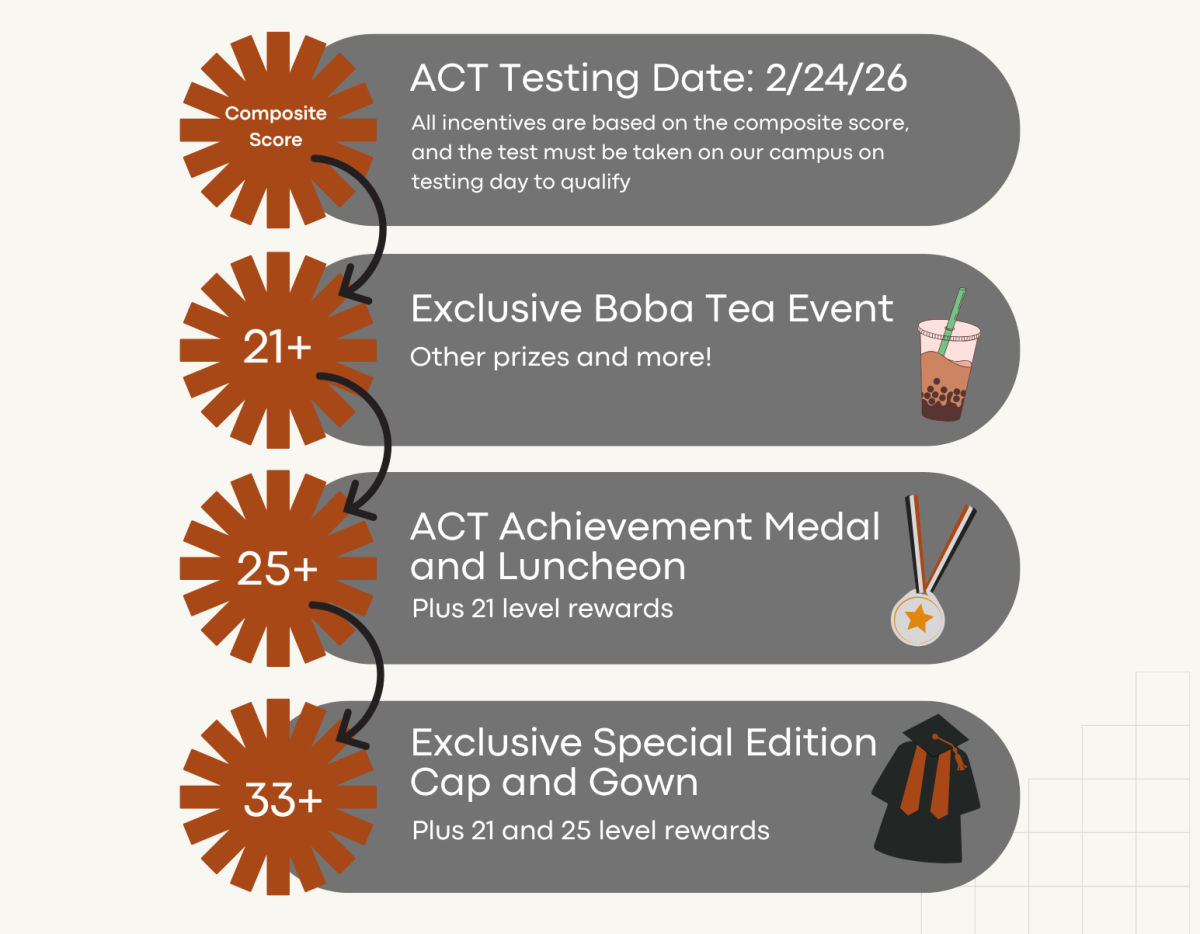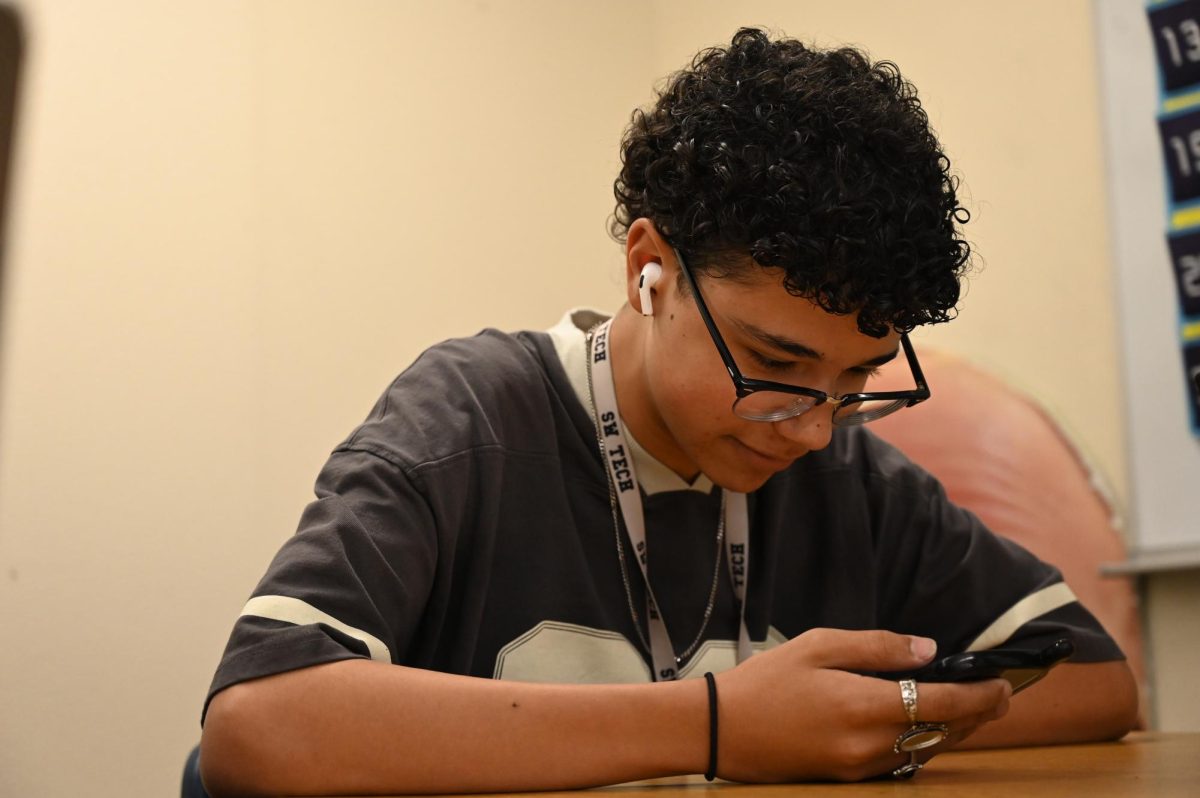The traditional map of adulthood has always been: driver’s license, college degree, career, marriage, and children. This has long shaped how young people are expected to grow up in the world. However, for many members of Generation Z, that map is no longer being followed.
More adolescents are entering adulthood without driving, enrolling in college, or making plans for marriage or children. For instance, the percentage of 16-year-olds with a driver’s license has dropped by more than half since the late 1990s. The State of Oregon Employment Department reports college enrollment among recent high school graduates has declined from 70% in 2016 to 61.4% in 2023. Furthermore, data shows that people in their late twenties and early thirties are marrying and are more likely to have children later in life–if at all.
“I don’t want to have children any time soon,” junior Nadia Baldwin said. “I think that I want to prioritize myself before I have to take care of a child. I also plan on getting married a bit later in life because I want to understand the person that I’m with before anything.”
Rather than marking a brief delay, these shifts appear to signal broader changes in how adulthood is defined.
Several factors contribute to this pattern. Economic pressures, including rising housing costs, stagnant wages, and student debt, make long-term planning more difficult. The COVID-19 pandemic disrupted education and work for millions of young people, accelerating trends already in motion. Digital life, too, plays a role: access to jobs, friendship, and entertainment online has reshaped the need for physical mobility or in-person experience.
“The pandemic was a pretty big part of when it came to me getting so burnt out,” junior Karina Damico. “The pandemic made all of us very isolated and had us stop communicating as often. I think that kind of disconnection made the idea of college overwhelming.”
According to a 2025 story by The Lion, many young adults say that traditional goals like marriage and parenthood are “not priorities” or “not realistic right now.” Mental health is also part of the equation, with Gen Z reporting higher rates of anxiety and depression than any previous generation, according to the American Psychological Association.
Still, skipping these milestones doesn’t mean that development is at a complete halt. Sociologists point out that Gen Z may not be rejecting adulthood so much as they are redefining it. In place of formal steps, some young people describe milestones that are quieter or more personal: paying for their own groceries, starting therapy, cutting off toxic family members, or renting their first apartment, even if it’s shared with roommates or located far from where they imagined living.
“I want to move out and find a nice apartment for myself at some point, maybe even with a roommate to make things easier,” junior Justin Nobleza said. “However, I don’t think I want to do that any time soon, since I don’t plan on getting my driver’s license till I’m around 20 or so.”
These changes have ripple effects. Industries that depend on predictable life stages like higher education, auto sales, and housing are adjusting. Public policy and urban planning may need to shift to meet different patterns of mobility, employment, and family structure.
The long-term effects are still unfolding. But as more young people continue to skip or delay traditional steps into adulthood, the question may no longer be when they’ll catch up but whether the steps themselves still apply.
“Who says growing up has to look the same for everyone?” Junior Alyson Joy Tulio said. “I’m just taking my path and don’t plan on following a traditional milestone.”



![Arranging the fabric on the floor for a new project, senior Sapphyre-Ann Leung plans out her attire for the next deadline. With the recent closures, students now had limited resources and less margin for error with the fabric and materials they had in stock while trying to reach strict deadlines. “Joann’s had a lot of high-end fabric for our fashion competitions,” Leung said. “We couldn’t just buy ten yards of fabric from Hobby Lobby or Walmart. Since [Joann Fabrics] is no longer open, we have to buy items online, which is way more expensive.”](https://southwestshadow.com/wp-content/uploads/2025/10/IMG_0038-1200x800.jpg)




![Swaying and preparing to toss the tennis ball, Dylan Grove practices serving. Grove had been training in preparation for her upcoming matches against Chaparral and Doral Red Rock. “[Both teams are] both very tough opponents, but I am ready for whatever gets thrown my way,” Grove said.](https://southwestshadow.com/wp-content/uploads/2025/10/image-1200x900.png)




